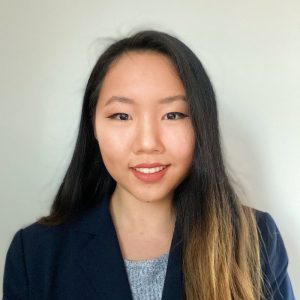AAYP 2019 Youth Ambassadors Scholarship

Emily Chan
The world is constantly morphing, dynamic, fluid, because it is shaped by the perceptions of the 7.53 billion people currently inhabiting the Earth. More than ever before in history, we are more connected to each other through technology, especially the influence of social media.
Technology has the power to connect us, but then why is there an alarming trend of division? The rise of nationalism, violence, and prejudice in real life is reflected in, or sometimes abetted by, social media. Humans are slow to change, a sort of human nature inertia. The extent to which we are able to be exposed to the intimate thoughts of strangers around the world amounts to a constant assault of information. Upon seeing something disagreeable to our core values or unfamiliar and threatening to our worldview, we are triggered into an automatic defensive reaction: we react anger and refuse to engage any more with the opposition.
Human nature demonstrates that when we are confronted in hostile manners, we retreat into safer environments. In modern times, this translates to the communities to which we belong. For the majority of the world, these communities are homogenous: sharing the same identity and values based around ethnicity, nationality, religion, and so forth. Personally, I come from such a background: I identify as Asian-American, specifically Chinese-American, and for the first eighteen years of my life, I was surrounded by immigrants or first-generation Chinese. Consequently, I inherited a rich sense of my ethnic identity, but also the prejudices carried by elder members of my community. When I came to college, I experienced culture shock due to being a minority in my surroundings and my peers’ lack of familiarity with the traditions and values I held. In this new environment with exposure to so many new people, I was also forced to confront the prejudices I carried.
My experience is not exclusive to me. The world we live in is shrinking because of technological advances, simultaneously leading us to fight with each other more because of preconceived prejudices. Nowhere is this more evident than in our own nation, where the political schism between liberals and conservatives widens each day. This creates two cultures that oppose each other vehemently and refuse to listen to the other side. The battle plays out in the top branches of government all the way down to our personal relationships; several of my friends no longer have healthy relationships with their parents after the 2016 presidential election. Our president promotes tribalism within American politics by using his platform to constantly denounce the other side and draws his support from extreme right-wing factions of the nation.
The global rise of violence and intolerance can be traced to division, so how can we fix this? I believe that the best way is to show compassion and empathy towards others, though this will not be immediate. Like most major crises, the necessary change must start at the individual level. As members of the global community, beyond boundaries of nationality, every one of us must confront our inner hostilities. First, we must recognize that we hold biases against others who differ from us, which is preventing peace. Second, we need to realize that benign differences should be celebrated, not repressed. Global diversity is a direct product of the variety of cultures and experiences in which people were raised. Lastly, we need to learn to listen perceptively to each other, because only by actively listening can we have effective and respectful dialogue. We need to take the time to process the perspectives of others instead of reacting defensively, as well as learn to ask questions that will help lead the conversation to mutual understanding instead of trying to one-up the other side.
For the first time in human history, we are becoming more interconnected with each other. Differences in opinions, values, and worldviews are contributing to a culture of hostility and division around the world, but we can stem this violence by taking the time to confront our individual prejudices and genuinely listen to the other side. Empathy, compassion, and open-mindedness will go a long way to making the world a safer and more peaceful place to live in.
